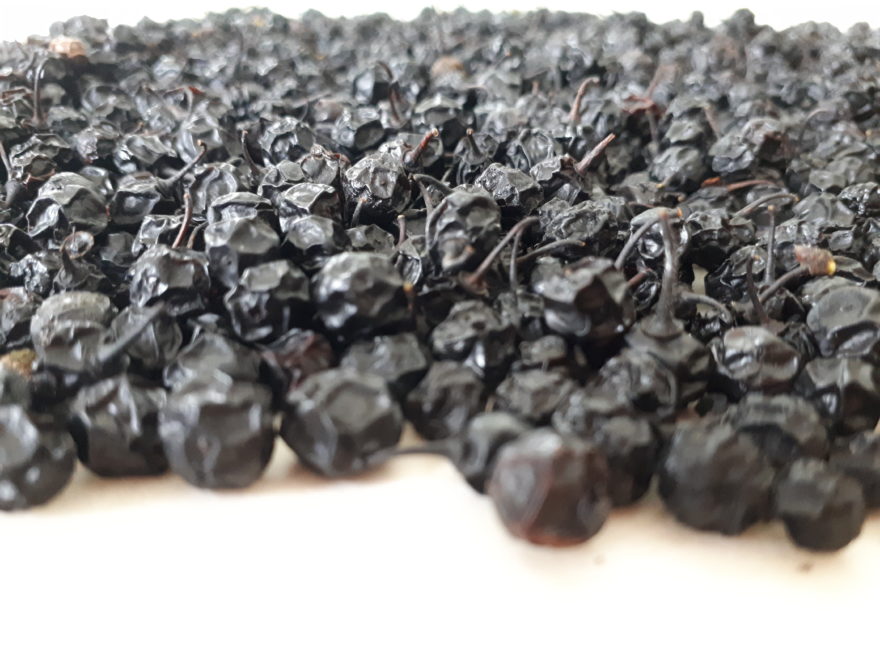Last month my husband and I participated in a local workshop run by a young herbalist. Its title was “Healer or Witch: An introduction to herbalism.”(1)
Our course leader, Alexandra (Alex), runs a business named ‘Clotilde du Balai’.(2) In English that would translate to ‘Clotilde of the broom’. Clotilde was the name of a French witch in a well-known story, and the broom is sometimes used as a symbol of witchcraft.
Although Alex assured us that she is not a witch, she does dabble in potions and brews. During this workshop, for example, she boiled up a batch of elderberry syrup – and then gave each of us a little sample bottle of it to bring home.
This was prior to any real concerns about the COVID-19 coronavirus in our area, so the workshop was in person. One of the thing we learned was the difference between an infusion (boiling water poured over plant material, like a pot of tea), a decoction (when the plant material is cooked, usually in water), and a distillation (involving, obviously, a distilling process).
It seems prescient that she chose to share her recipe for elderberry syrup, which I’ll now share with you because she has posted it publicly on her Instagram feed (@clotildedubalai, entirely in French).
The note she included with her recipe was in French, so I’ll provide a rough translation here:
My contribution to the crisis; sharing my little witchery tricks, one recipe at a time. Because not having money should never pose a barrier to health. (Obviously, my recommendations in no way replace the advice of a physician or pharmacist.)”
For any of you who speak French, the original version is: “Ma contribution à la crise: partager mes petits trucs de sorcière, une recette à la fois. Parce que le manque de sous ne devrait jamais poser de barrière à la santé. (Évidemment, mes recommandations ne remplacent en aucun cas ceux d’une médecin/pharmacienne.)”
The first recipe Alex has chosen to share on Instragram is the same one that she presented during the workshop last month, using dried elderberries. These berries can be foraged from Sambucus canadensis shrubs, which grow wild in our area.
To forage any berries, you must be absolutely certain that you’ve properly identified the plants and berries. It’s also important to ensure that you’re not trespassing!
Dried organic elderberries can also be found in health food stores; Alex told us to buy only organic berries, otherwise our decoction or cooking process will result in a syrup of pesticides or herbicides.
What’s fun in my area, with snow still on the ground, is that these berries stay on the shrubs’ branches over the winter. I was able to forage about a cup of them, in about a half hour, when I went snowshoeing a few weeks ago.
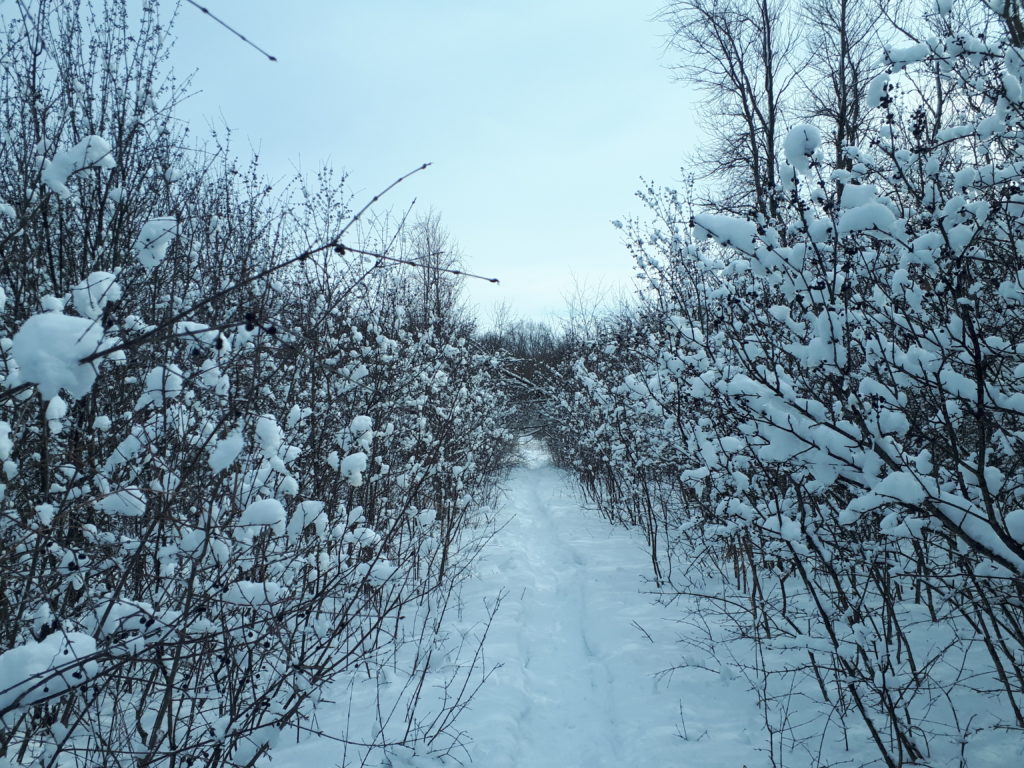
The elderberries had partially dried throughout the winter months, so back at home I simply left them out – on a cookie sheet – for about a week to let them dry completely.
Elderberries are a good source of several different vitamins, contain high levels of antioxidants, and have been scientifically proven to boost the immune system. They’re currently being studied as an aid for cognitive impairment(3), something with which I’ve been diagnosed as a result of my rare disease (CRPS).
Doesn’t this sound like a perfect recipe to try at home during this pandemic period; an extra little boost to your immune system? This is one of those traditional recipes that may well help improve health, with very little risk. Unless you use the wrong type of berry, or are allergic to berries or to the unpasteurized honey into which the well-cooked ‘potion’ will be blended.
Oh, and don’t be tempted to try any of the raw elderberries – they’re toxic to humans unless they’ve been cooked! What do you think? Are you interested in boiling up your own little batch of this witches’ brew? This is, again, my own translation of Alex’s recipe; my French husband has checked it, to be certain it’s accurate.
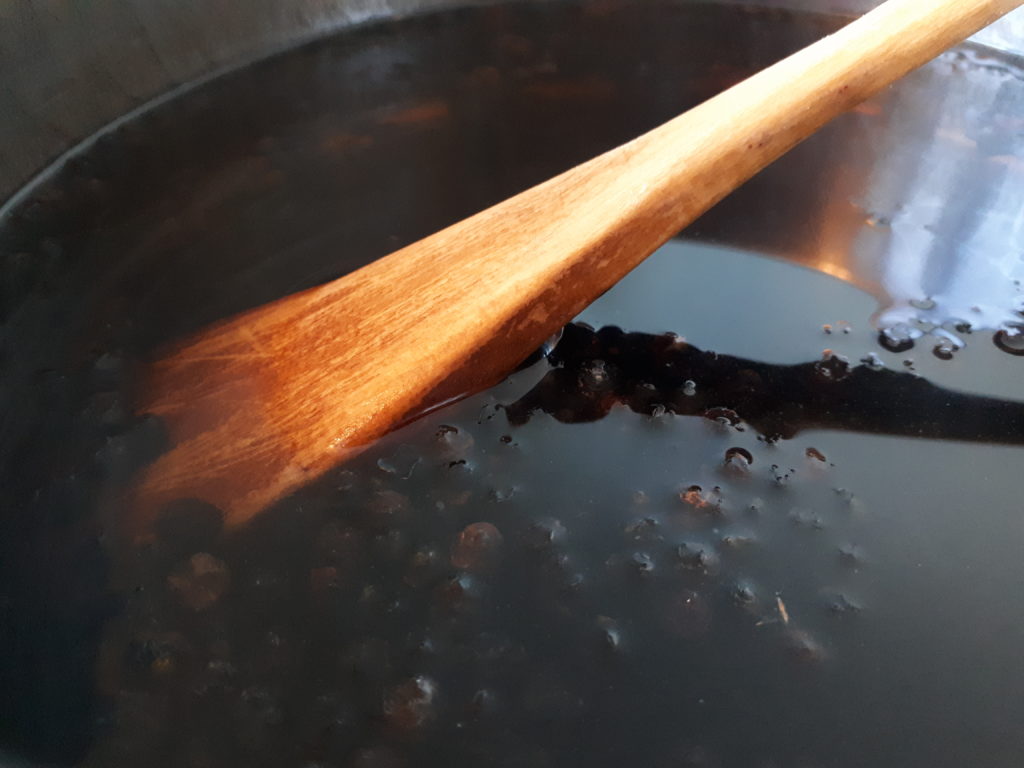
To start, you’ll need:
- 62 ml (¼ cup) dried – organic or foraged – elderberries; they’ll feel almost like tiny pebbles
- 250 ml (1 cup) water
- 125 ml (½ cup) unpasteurized honey; Alex recommends using organic honey
Once you’ve gathered these ingredients, find a glass or ceramic bowl large enough to hold at least 500 ml (2 cups) of liquid. You’ll also need a medium-size saucepan with a lid, as well as a strainer and a heat-resistant (and stain-resistant) spoon or spatula.
It’s best to store the prepared elderberry syrup in a light-proof glass bottle; a green or brown one. If you don’t have anything like this, you can use a regular mason jar and then slip it into a brown paper bag (a lunch bag would work).*
Potion-brewing instructions:
- Pour the honey into a glass or ceramic bowl, set aside
- Mix the berries and water in the saucepan
- Bring to a boil, then reduce heat and simmer, partially covered
- Stir often, until there’s only 125 ml (½ cup) of liquid left in the pot
- Remove from heat
- Pour the very hot liquid – carefully! – into the strainer, holding it over the bowl of honey
(If you’re concerned about holding onto both the strainer and the pot, my trick was to use a second bowl; I first strained the berries into the empty bowl, then poured the almost-boiling liquid from there into the larger bowl of honey.) - Strain as much liquid out of the cooked berry mixture as you can
- Stir the now-warm honey mixture well, to completely blend your potion into a syrup (if any berries fell in, fish them out!)
- Let cool slightly, then pour into a glass bottle (see above*)
- Store in the fridge for up to several weeks, protected from the light inside the refrigerator
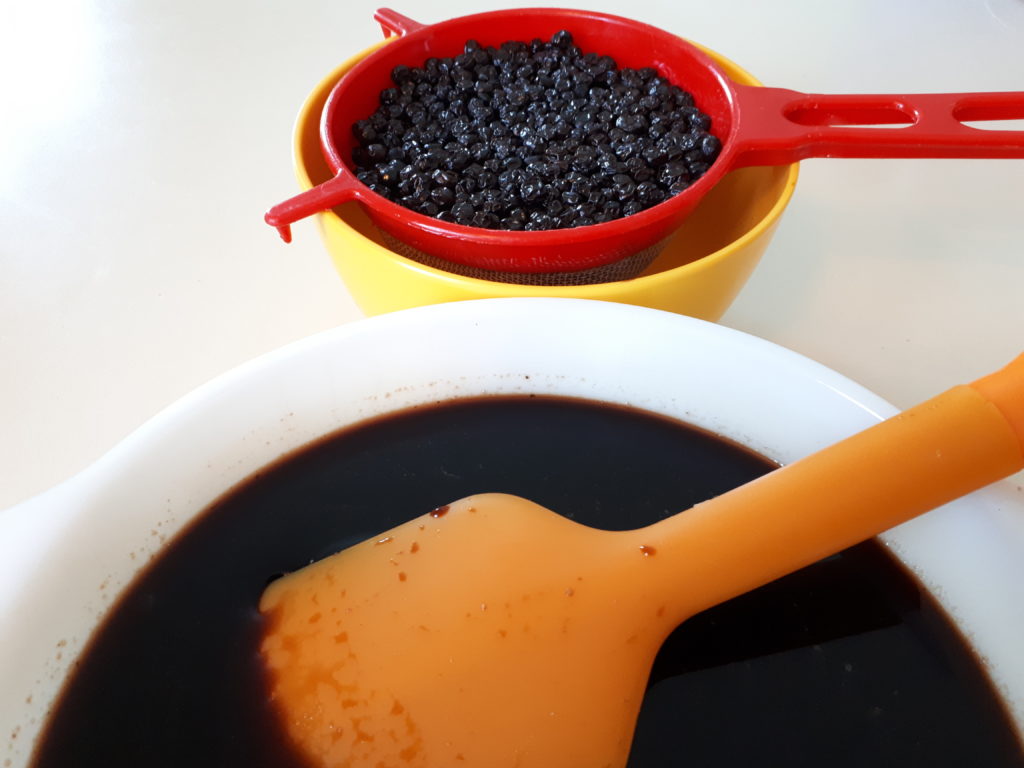
Alex’s recommendation is to take up to 15 ml (1 tbsp) of this homemade potion, up to six times a day. Enjoy this little boost to your immune system, and take pleasure in the fact that you’ve done something for your own health! I’m definitely enjoying mine.
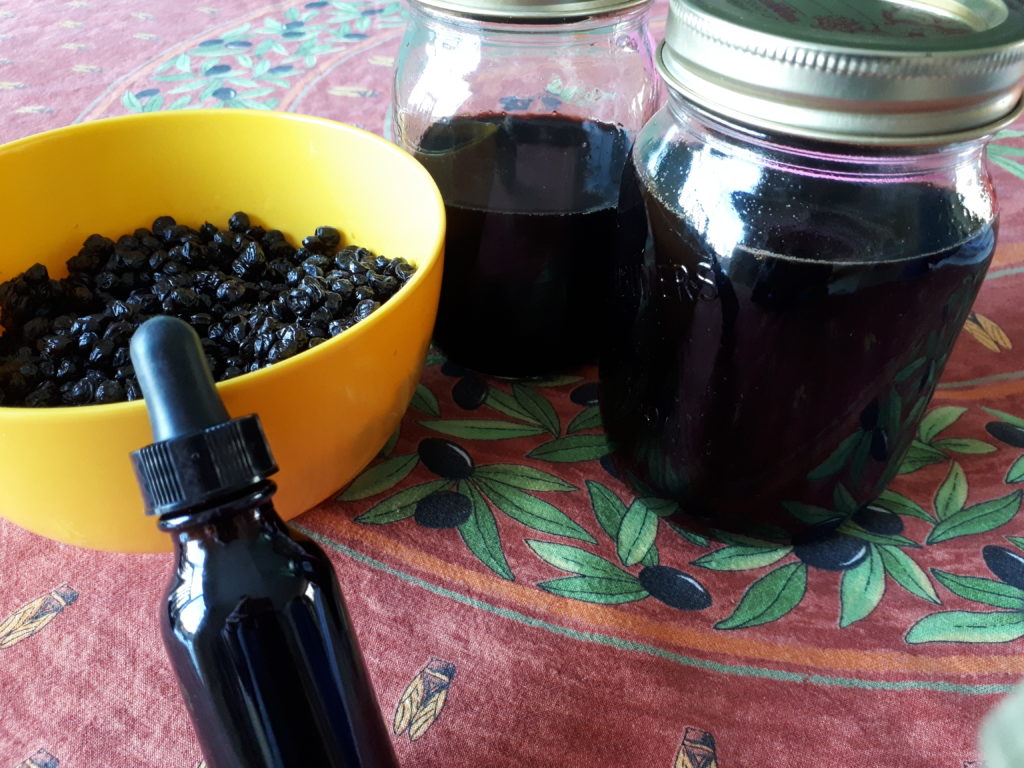
As always, thanks so much for stopping by. Please feel free to send me your comments over on Instagram or Twitter, because the blog comments have been stopped. For some reason, my little non-commercial blog was getting swamped with obscene email from overseas, and I refuse to deal with it.
References
(1) Workshop – Healer or Witch: An introduction to herbalism. City of Pointe-Claire. Online. Accessed 23 Feb 2019:
https://www.pointe-claire.ca/en/calendar/workshop-healer-or-witch-an-introduction-to-herbalism/
(2) Clotilde en bref. (Website entirely in French only.) Clotilde du Balai. Online. Accessed 15 Mar 2020:
https://clotildedubalai.com/
(3) University of Missouri-Columbia; Principal Investigator David Beversdorf. Effect of Elderberry Juice on Cognition and Inflammation in Patients With Mild Cognitive Impairment. ClinicalTrials.gov. Identifier: NCT02414607. 13 Apr 2015. Online. Accessed 23 Feb 2020:
https://clinicaltrials.gov/ct2/show/NCT02414607?term=elderberry&draw=2&rank=2

